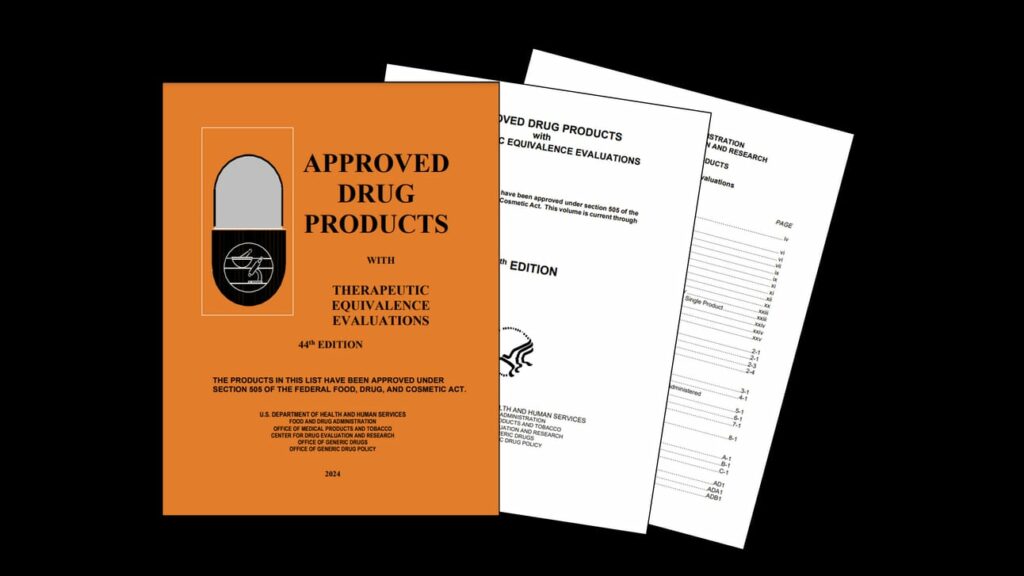I mentioned yesterday that the first IRA lawsuit appeal — the one backed by PhRMA — will see the inside of a courtroom today. Audio details available here.
The FTC is doing more saber-rattling around the Orange Book, which is the big database of patents that the FDA maintains and is used to determine what patents must be expired/challenged for a generic to enter the market.
This is something we’ve been talking about for a while. Late last year, the FTC pushed a bunch of drugmakers to delist from the Orange Book patents that the FTC thought were inappropriate (mostly around inhalers). The manufacturers (mostly) complied amidst pressure from both the FTC and Congress. It’s a favorite topic of Sen. Elizabeth Warren.
Now, the FTC is again demanding that a bunch of companies delist a bunch of patents. And they’ll probably be (mostly) successful again. (They’ve already been successful getting media attention, with CNBC, AP, and WSJ all over this.)
It’s worth noting — because this doesn’t come up in media stories that often — that the industry position is not so much “We ❤️ Listing Patents in the Orange Book” as it is ¯_(ツ)_/¯. The rules about what is and is not an appropriate patent for listing are not straightforward. Industry has asked for clarity a couple of times (as outlined in this clear PhRMA blog post), and the FDA hasn’t remotely delivered.
The Government Accountability Office tried to get to the bottom of this with a report last year. The GAO talked to 15 different stakeholders and found that “13 of the 15 stakeholders agreed it would be helpful for FDA to clarify which device-related patents should be listed in the Orange Book.” Pharma wants action. Liz Warren wants action.
Still, no dice from FDA.
To be clear, there isn’t a consensus on what the FDA should do with the Orange Book. And, to be fair, pharma is generally asking for looser standards. But the point is that the rules here aren’t clear.
Thus, the FTC showing up and making demands while Congress hollers is not especially sustainable policymaking.
It’s great theater, though.
(Quick aside here: the real impact of the latest announcement by the FTC might be semantic. The agency has started using the phrase “junk patents” to refer to patents that they believe are improperly listed in the Orange Book. “Junk patents” is waaaaaay more attention-grabbing than “patents improperly listed in the Orange Book.” I won’t be using the phrase, for obvious reasons, but I don’t want to kid anyone: language matters.)
This Leena Wen column in the Washington Post is an important summary of the conventional framing of what the IRA is, and it’s the line that President Biden is going to take for the rest of the year. But Wen’s take misses all the nuance and exposes the soft underbelly of the price control provisions. “Negotiations” are generally presented as a wonderful, consumer-friendly intervention in the market, ignoring the fact that there is no guarantee that any price cuts will be passed along to patients or that medicines will be more accessible in a price-controlled world.
Lilly’s earnings yesterday included the company’s usual disclosure of the impact of drug prices on the overall numbers. Bucking a recent trend around lower net prices, Lilly saw higher recognized prices. Still, that wasn’t price increases but rather a phenomenon “largely driven by Mounjaro access and savings card dynamics.”
Lilly also said it’s going to continue to press for broad Medicare coverage of obesity meds: “Our true north is really to get the true Treat and Reduce Obesity Act cost, and we strongly believe it’s not a matter of if but when. We don’t see it likely to pass in 2024, but there is still a small likelihood that that’s going to happen.”
This is a really good outline — in Health Affairs — of what IRA price controls could look like, in a world in which transparency and predictability were being prioritized by the government. That’s not necessarily an endorsement of the approach that is presented in the Health Affairs, but it is an endorsement of the thought process and principles that underlie the proposal.
Accelerated approval is having a moment. Here is more research, this time from Avalere, looking at the kind of patients who are getting access to the rising number of accelerated approval drugs. While the headline is that the number of medicines getting to patients quicker seems to be rising, this work suggests that accelerated approval medicines are indeed making it to some traditionally underserved populations.
“Skinny labels” of generic drugs saved Medicare about $15 billion over six years, according to STAT coverage of Harvard PORTAL research in the Annals of Internal Medicine. Nearly all of that $15 billion, though, was the result of just three meds going generic: Crestor, Lyrica, and Gleevec.
If this email was forwarded to you, and you’d like to become a reader, click here to see back issues of Cost Curve and subscribe to the newsletter.




